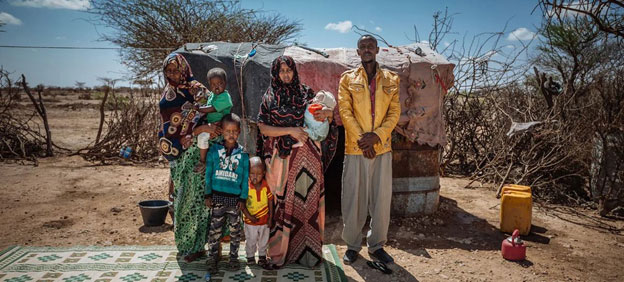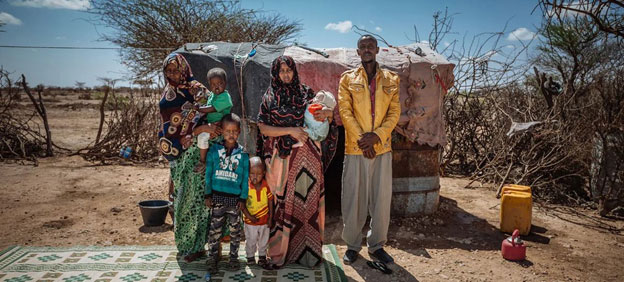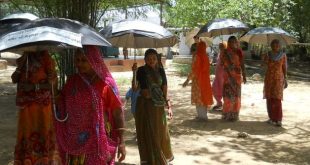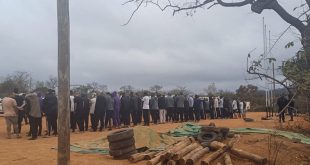
BANGKOK, Thailand, Jan 17 (IPS) – As the world is still gearing up to welcome 2024, let us find a moment to reflect on some of the key trends of the past year and pursue now to embrace the path towards hope and promise for everyone, everywhere.
Deepening global inequalities are having enormous socio-economic implications across countries. Increasing income and social disparities are spreading around regions. Growing intensities of climate induced natural disasters, the uneven speed of post-pandemic recoveries, and cost-of-living crises from conflicts and geopolitical tensions are exacerbating inequalities and poverty traps globally.
The changing distribution of economic benefits vis-à-vis the rising prices of food and fuel are causing social unrest and protests. Citizens are voicing their frustration not only in the streets of capitals but through exponential engagement on social media platforms.
With the intensification of various external shocks, and the lack of economic opportunities for accelerating growth and productivity surges, multidimensional poverty indices are on rise. The inequality-poverty nexus is contributing to a new form of uncertainty for disadvantaged households.

Intensifying course of climate change
Intensifying hazards caused by climate change, such as floods, tropical cyclones, heatwaves, droughts and earthquakes, have impacted agricultural outputs and industrial sectors, especially through decreasing productivity growth and falling real wages. The widening gap between rich and poor in rural and urban areas has also been linked to extreme weather events due to the increasing frequency of natural disasters.
These inequalities are further aggravating extreme poverty, creating the vicious nexus of climate-disaster-inequalities among vulnerable groups.
Evidence from around the world indicates that climate change is likely to impact more severely on vulnerable groups and coastal communities, because they are more exposed to the uncertainties of weather patterns. Lack of adaptive capacity are often constraining the ability of these communities to build resilience and cope with the severity of these environmental shocks.
Widespread incidence of climate migration from low- to high-latitude areas and social mobility are increasingly impacting the social fabric of small island developing States and other developing economies.
With the exodus of young and skilled labour force, transfers of income and the wealth gap will further worsen inequalities in communities, raising concerns of greater socio-economic uncertainties.
From Fiji to Ethiopia, Bangladesh to Brazil, the exacerbation of inequalities due to climate change has been impacting socio-economic prosperity. Growth uncertainties are causing extreme poverty to increase, while causing hardship and hunger for households in rural areas.
Varying scales of COVID-19 pandemic
Socio-economic polarization has been on the rise since the global outbreak of the COVID-19 pandemic. Due to differentiated impacts of national lockdowns, pandemic restrictions and vaccination measures have had adverse impacts on the existing inequalities and multidimensional poverty indices.
As economic development stagnation persists, rural areas have seen rising impacts of extreme poverty and income divergence across households, leading to new episodes of income divergence within countries.
The post-COVID 19 recoveries are uneven. Rising levels of unemployment and stagnating real wages remain major indicators of corresponding economic growth deceleration. The differentiated policy measures to stabilize labour market distortions, social protection systems and sectoral productivity surges have not always achieved the desired outcomes in developing countries.
According to the labour force surveys in various countries, the majority of workers have been engaged in less paid work due to lack of dynamism in the labour market. Evidence suggests that the changes in work style and availability of types of jobs as well as their skills and profiles aggravate the income disparity within urban centres.
From several Latin American to African countries, the pandemic-induced policy measures have differently elevated the risk of vulnerability for the manual labor force. Similarly, the studies have shown that young, low-income and self-employed workers including women with limited education, have suffered greater job losses and earnings reductions than other groups in the workforce in the UK, USA, China and India, among others.
Changing forms of conflicts
Conflicts also go beyond borders, causing immeasurable human suffering on the global scale. With the volatility and uncertainties around supply chains, food and fuel prices spiral. Cost-of-living crisis spreads around countries as governments lose fiscal space for developmental expenditure, while debt burden mounts.
Conflicts cause people to lose hope and opportunities from East to West, North to Southern countries. With the lack of rule of law and property rights, households and communities fall into poverty traps, changing the face of socio-economic disparity.
As these conflicts are prolonged, countries often fail to overcome the existing structural constraints, maintain production streams, and improve lackluster infrastructure. A higher risk of falling into poverty traps and increasing scale of disparities is then the inevitable outcome. The polarization fears and lack of trust are now a reality.
Looking ahead
Today, as we look back at 2023, there is no doubt that in the end, common aspirations and outlooks remain our best hope to chart a new course to advance the Sustainable Development Goals. Evidence of successful policy coherence will provide valuable opportunities for policymakers to unite their priorities and lay the foundations for breakthroughs.
Sudip Ranjan Basu is Deputy Head and Senior Economic Affairs Officer; Chen Wang is Professor, Institute of Finance and Economics, Shanghai University of Finance and Economics, China; Monica Das is Associate Professor, Economics Department, Skidmore College, New York
IPS UN Bureau
Follow @IPSNewsUNBureau
Follow IPS News UN Bureau on Instagram
© Inter Press Service (2024) — All Rights ReservedOriginal source: Inter Press Service
 Top Naija News – Nigeria News, Nigerian News & Top Stories Top Naija News – Nigerian Newspapers, Nigerian News. topnaijanews is a daily Nigerian newspaper covering Latest News, Breaking News, Entertainment, Sports, Lifestyle and Politics.
Top Naija News – Nigeria News, Nigerian News & Top Stories Top Naija News – Nigerian Newspapers, Nigerian News. topnaijanews is a daily Nigerian newspaper covering Latest News, Breaking News, Entertainment, Sports, Lifestyle and Politics.




